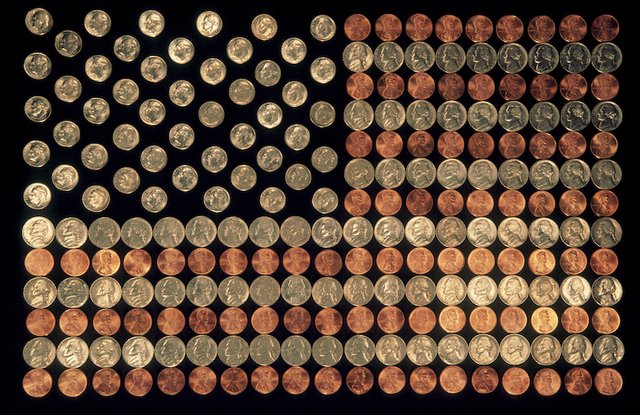
Introduction
We hear the term "free" being used a lot of times in relation to online services.
Can anything truly be "free" though?
(Just to clarify I mean free in terms of price rather than liberty.)
I recently started reading a book recommended by @marketingmonk on his Cryptoverse podcast called "Free: The Future of a Radical Price" by Chris Anderson.
I've only read about 10% of this book so far but like some of the best reading material it has stimulated a lot of thought for me.
I am not an economist and so will apologise in advance for any misunderstandings or errors I make.
The Atom Economy vs the Bit Economy?

Anderson uses two terms to describe the different types of economy that we have now:
The "atom economy" which is based on products which are physical and the "bit economy" which consists of computer software based products.
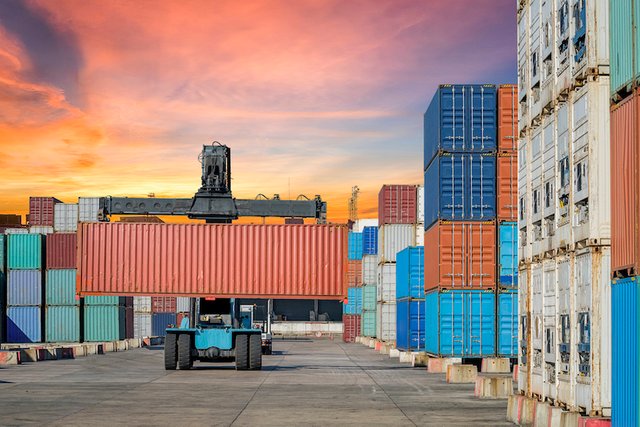
Atom based products generally get more expensive in price mainly due to:
- Component material scarcity.
- Comparitively high cost involved in production and duplication.
- The logistical costs of transporting a physical entity.
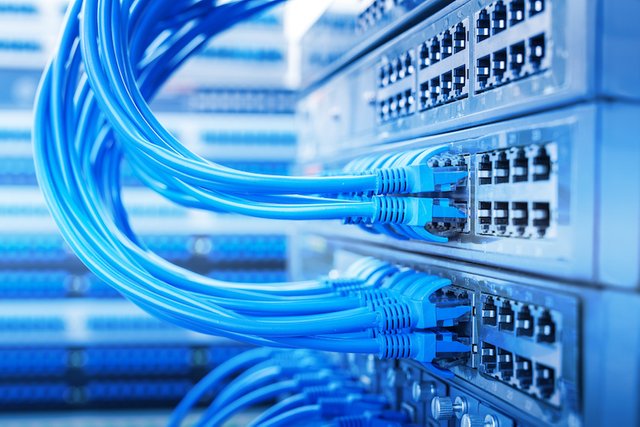
Bit based products get cheaper in price over time due to:
- Moore's law and other technological advancements resulting in a reduction in computing/server/network costs.
- Nearly zero cost of duplication of digital data which dimishes over time in line with point 1.
- Nearly zero cost of transportation using the web which also diminishes in line with point 1.
Note the above points assume that both types of product require similar amounts of human input for sake of simplicity.
Bit and atom are not completely separate
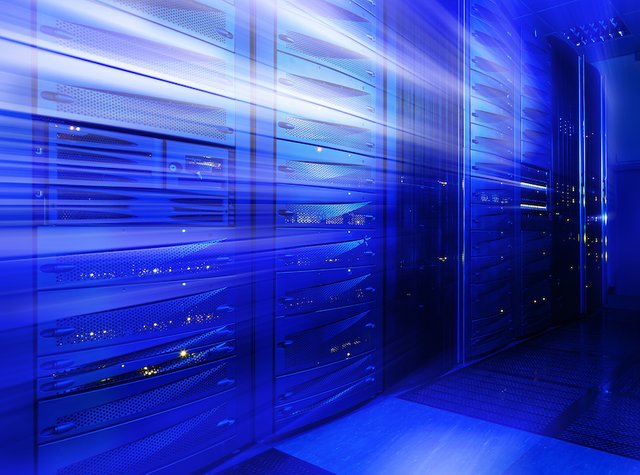
It is obviously a bit more complicated than that because computing is based on the atom economy.
You can't compute without physical devices to do the computing.
Also Moore's law is not guaranteed to always exist and there are current problems with shrinking transistors further as we have seen in Intel's recent adjustment to it's Tick-Tock cycle.
It is nevertheless a good simplification to make when discussing these issues from a theoretical and philosophical perspective.
This got me thinking along an interesting philosophical line.
Can we ever have something that is truly free?
Energy is the main cost if we remove humans
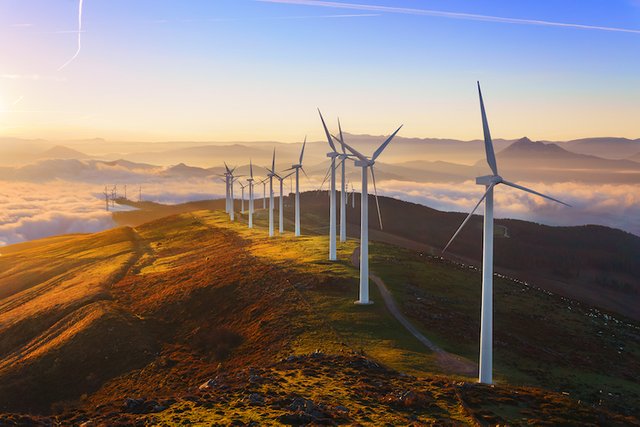
Right now you still need humans to put in time and effort to create both types of product but one could envision a future where AI removes that role at least in certain cases.
At that point I envision the main cost being the energy expended in producing them and manipulating them.
This is the main advantage for the bit economy vs the atom economy.
The energy cost of manipulation is exponentially smaller than for physical products and it is continuing to get smaller all the time.
Could it ever be free though?
Free Energy

Let's put aside the issue of the first law of thermodynamics for purposes of a thought experiment:
Let's say someone discovers a form of what is described as "free energy" which anyone can tap into and does not run out (already it is sounding implausible).
This might appear to reduce the gulf in the cost advantage between atoms and bits to a degree, although material scarcity would still be a factor.
Would bit based products essentially be free at this point?
Bits STILL need atoms even with "free energy" hence there will always be a cost even if it is small

This brings me to the crux of my argument and it all goes back to the point about the fact that bits can't truly be seperated from atoms.
We will always need atoms - i.e. physical items in order to interact with the information in the form of bits.
Further the energy we use will also need to be extracted and manipulated using atoms. This will always introduce a cost.
The cost may proportionally get smaller and smaller with time but it will always be there.
So in my opinion "free" in the absolute sense is an abstract and theoretical concept that cannot exist in the universe as we know it.
One analogy would be to think of it like infinity. A lot of people talk about it like an actual thing but it is essentially a theoretical construct.
Actually free vs practically free

One practical definition of free might be that a point may be reached where the cost of a product becomes so low that it plunges below the lowest measurable value within the economic system.
This may sound far fetched but if we look at it from the point of view of information then one might consider that every system has a level of quantisation and resolution.
I'm not sure if I have the intellectually capability to even describe this concept adequately. I will apologise if that is the case.
Anyway I will attempt to explain using an analogy:
My clumsy analogy
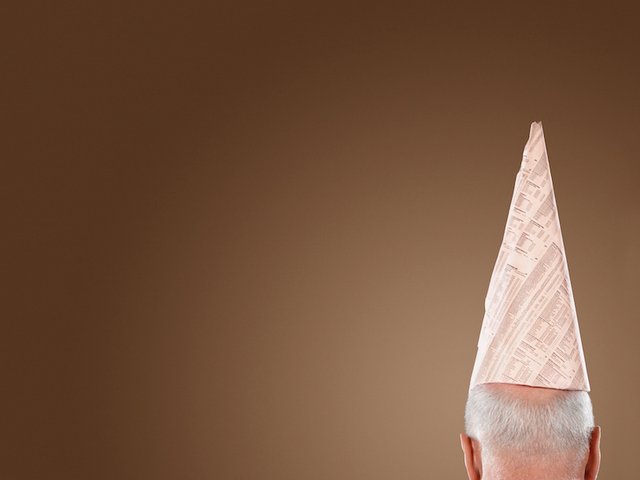
Let's say our entire system is based on the dollar. Each dollar is composed of a hundred cents.
Let's say in this hypothetical world we only ever round up or down by one cent. One cent is the limitation of resolution in our world.
It is the threshold of cost. In this hypothetical world everything with a value of equal to or greater than 0.005 cents has a cost that can be expressed. Anything less than that is invisible to our financial system.
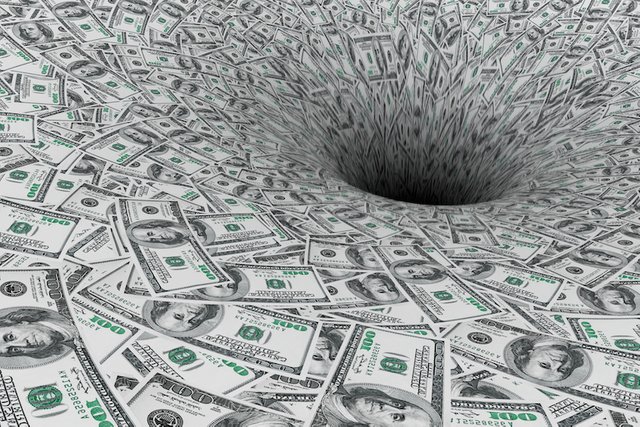
So if the cost of a particular item or service multiplied by the number of transactions involving it falls to less than this threshold value it becomes "practically free".
Obviously in our actual world things are a lot more complicated but there may be a threshold where the same effect occurs in that the cost of an item becomes so low that it is essentially below the threshold of quantifiable value in the system.
At that point it becomes practically free. In my opinion (which could well be completely wrong) this is the closest we can get to something actually being free.
What do you think?
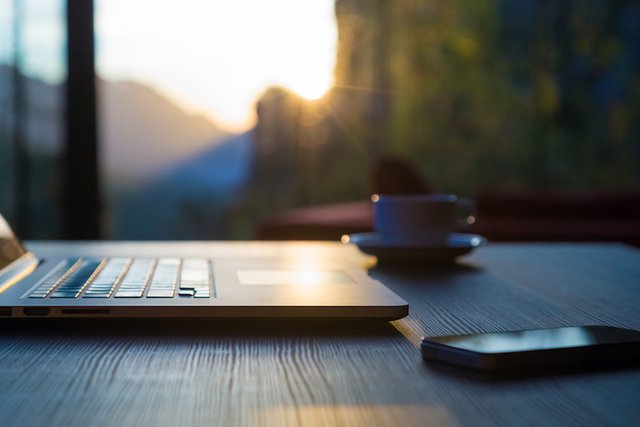
I'll end it there and leave it open for everyone else to discuss. I'm not an economist so I will apologise in advance if I have made a fatal flaw in any of the reasoning here. I find this subject to be fascinating though.
Please have your say in the comments below - let's get back to having more of the vibrant discussion we used to have in the early days of Steemit:)
Thank you for reading.
Photo Credits: All photos are taken from my personal stock photography account with Thinkstockphotos.com.
(Verification for me here: http://www.aapicture.com/about-me)
Some of my other recent posts
- Beauty is all around us - more textures for you to use in your own posts
- The sponsorship model for advertising on Steemit
- Some moody church photos to test my new lens
- Some beautiful, artistic textures for you to use in your own posts
- Snowy - some adorable cat photos (feel free to use them in your own posts)
Are You New to Steemit and Finding it Confusing?
These resources may help:
- For a Quick FAQ - Try this
- To learn about Markdown (to help you post) - Try this
- Need to know Steemit Etiquette? - Try this
- Need some free images for your posts? Try Steemit4free - make sure to check which images it applies to.
- Need to talk to a human for help? - Try the chat
- Need Mentorship? - Try Steemprentice - here is a link that explains it, and here is the chat channel.
- Need a Free Image Host that works with Steemit? - Try SteemImg - it automatically produces markdown and html links for you, as well creating thumbnails and more.
- Need to Buy or Sell Steem/SD? - Try this tutorial for Blocktrades.
(Want to use this list in your own posts? - download the text file formatted in Markdown here.)

Thanks @thecryptofiend for writing this article! Nice job! It is always good to know about economy and economics. That was one of my favor classes when I went to college and them to the University. I had other classes as well and my third favor class was sociology and political sciences. Yes, I also had philosophy. Many people think that economics are everything because there is a cost for everything we do and from there comes the idea that; "There is no such a thing as a free lunch". However, life is more than that! I am sure some people one day, seated somewhere in the dark of the night observing the stars and planets in the Universe. I am also sure it probably occur to them that the Earth, our own planet that gives us everything for free also spin around itself and around the Sun without charging us for that. No one comes here in the end of the Month and says; "You had 39% of sunlight and 59% of oxygen this month, pay us out!" If one will ever think about that they will probably realize that humans have not evolved that much. Life is not made of only products, services, and information. There are certain things in life that have no cost and others must be paid by everybody into the pot. As a society and as humans we still have lots of things to learn. One day some people will probably realize that there are certain things you cannot transform into products. Economy/economics is only a part of human development and history and many people have not understood the use and full potential of these things yet.
Downvoting a post can decrease pending rewards and make it less visible. Common reasons:
Submit
Thanks for such a great response. I agree. Most people do not understand the value of things and try to commoditise everything.
Downvoting a post can decrease pending rewards and make it less visible. Common reasons:
Submit
Thank You @thecryptofiend! Your article is very enlightening!
Downvoting a post can decrease pending rewards and make it less visible. Common reasons:
Submit
: )
Downvoting a post can decrease pending rewards and make it less visible. Common reasons:
Submit
This post has been linked to from another place on Steem.
Learn more about and upvote to support linkback bot v0.5. Flag this comment if you don't want the bot to continue posting linkbacks for your posts.
Built by @ontofractal
Downvoting a post can decrease pending rewards and make it less visible. Common reasons:
Submit
Thank you:)
Downvoting a post can decrease pending rewards and make it less visible. Common reasons:
Submit
UV and RS for you, as usual. You are always one of my fav. people to read - whether it is your comments on things or your posts. I learn from you, so thanks. BD
Downvoting a post can decrease pending rewards and make it less visible. Common reasons:
Submit
That is very kind mate. I'm just a regular person trying to make sense of the world like everyone else:)
Downvoting a post can decrease pending rewards and make it less visible. Common reasons:
Submit
In the country where there is no such thing as a free lunch, I think noo
Downvoting a post can decrease pending rewards and make it less visible. Common reasons:
Submit
I think it applies to most countries:)
Downvoting a post can decrease pending rewards and make it less visible. Common reasons:
Submit
Ah ah, I agree with you but at least in the U.S.A. are honest and they say it clearly: do not ask for socialism around here...
Downvoting a post can decrease pending rewards and make it less visible. Common reasons:
Submit
Even with socialism there is a cost. They just try to hide it:)
Downvoting a post can decrease pending rewards and make it less visible. Common reasons:
Submit
Thumb up mate, thumb up!
Downvoting a post can decrease pending rewards and make it less visible. Common reasons:
Submit
Thank you:)
Downvoting a post can decrease pending rewards and make it less visible. Common reasons:
Submit
upvote and resteem
Downvoting a post can decrease pending rewards and make it less visible. Common reasons:
Submit
Thanks that is very kind:)
Downvoting a post can decrease pending rewards and make it less visible. Common reasons:
Submit
This is awesome article sir.
Downvoting a post can decrease pending rewards and make it less visible. Common reasons:
Submit
Thanks mate. You don't need to call me sir though. You can call me Arif or cryptofiend or whatever you prefer:)
Downvoting a post can decrease pending rewards and make it less visible. Common reasons:
Submit
I like the Arif name. Different then what we hear in Canada.
Don't worry about the Sir calling. Everyone is a sir. :)
Downvoting a post can decrease pending rewards and make it less visible. Common reasons:
Submit
Lol yes it's not very common.
You are very polite my friend:) Actually I used to do it a lot too because I went to a very old fashioned school.
I'm not being critical - it is lovely really so if you prefer that then that is fine:)
Downvoting a post can decrease pending rewards and make it less visible. Common reasons:
Submit
TANSTAFL
Downvoting a post can decrease pending rewards and make it less visible. Common reasons:
Submit
The interesting thing is there did used to be free lunches in the 19th century! That's where the saying comes from - they were not truly free because they were sold in pubs and subsidised by alcohol sales.
Downvoting a post can decrease pending rewards and make it less visible. Common reasons:
Submit
Interesting bit of history with regards to that statement!
Downvoting a post can decrease pending rewards and make it less visible. Common reasons:
Submit
Yes I didn't know about it until I started reading that book.
Downvoting a post can decrease pending rewards and make it less visible. Common reasons:
Submit